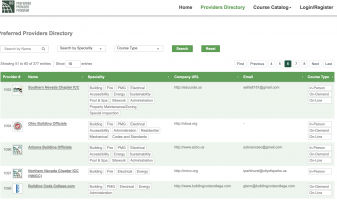I think UpCodes founders knew exactly what they were exploiting for profit. This is my opinion and from this opinion I think it was an unethical business idea from the beginning. I therefore do not support that business. I have no judgement on those that do. I have always worked very hard to be respectful in my republishing of code sections in my educational products and keeping it well within "fair use" and always citing and promoting the complete source of the I-Codes, ICC.
Do I and and did I agree with how ICC has handled every aspect of their codes? That's a different subject and does not affect my above opinions.
As someone that puts my hard work and investment on the internet as copyrighted material, I know what its like when its stolen from you and I know how important it is for it not to be. Just because a government once took my work and published in in their handout, doesn't mean it now belongs to the public to resell. In the same way that a government adopting a code by reference doesn't make it available to the public to resell. I'm no lawyer. These are my ethics.


